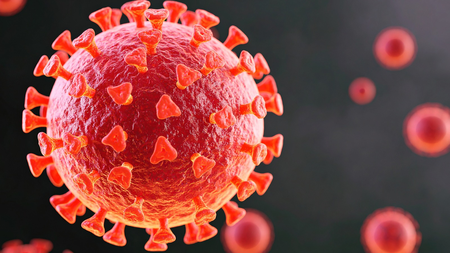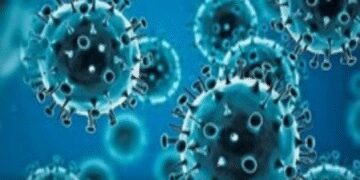New Delhi, 11 June (IANS). Amidst the new wave of Kovid-19, Israeli scientists have revealed that a protein of this virus attacks our healthy cells.
This discovery has been published in magazine cell reports and can help understand the serious problems of Kovid-19.
According to a study published in the Cell Report magazine, new information has been received on how the serious problems of Kovid-19. This study also suggests new ways to prevent immune-related damage from viruses.
Researchers at Hebrew University, Jerusalem found that nucleocapsid protein (NP) of the virus, which packs the genetic content of the virus in usually infected cells, can spread to a healthy epithelial cells.
When nucleocapsid protein (NP) reaches the surface of healthy cells, the immune system mistakenly considers it a danger. The immune system then sends anti-NP antibodies, which marks to destroy these healthy cells.
This process initiates the ‘Classical Compliment Pathway’, which is part of the immune response. This causes inflammation and damage to the tissue, which can cause severe covid symptoms and prolonged covids.
Researchers found the cells developed in the laboratory, advanced imaging techniques and samples of Kovid-19 patients that nucleocapsid proteins (NP) are connected to a particular molecule present on the cell surface. Due to this engagement, this protein accumulates on healthy cells, causing the immune system to become more confused.
The study also showed that a drug called anchoxaparin, which is used to dilute the blood and is a form of heparin, can prevent NP from sticking to healthy cells. In laboratory tests and patients samples, Anoxaparin helped prevent immune attacks by blocking places where NP sticks.
Researchers say that this discovery may be effective in reducing the difficulties caused by the immune system in other viral infections, including Kovid.
Meanwhile, a new variant of Kovid NB 1.8.1 is spreading rapidly in many parts of the world, increasing new concerns. This variant is part of the Omikron Family, which was found for the first time in January 2025. It has spread to India as well as countries like America, Britain, Australia, China, Maldives and Egypt.
The World Health Organization has declared it a ‘variant under surveillance’, that is, it is spreading so fast that it is necessary to pay attention to it, but it is not yet considered a big threat.
-IANS
MT/KR






